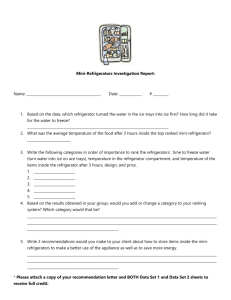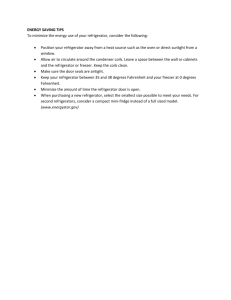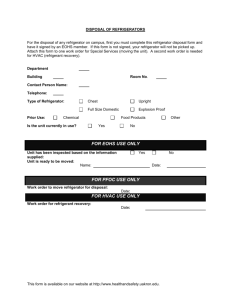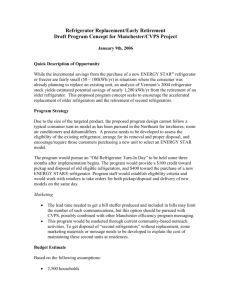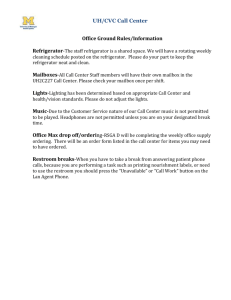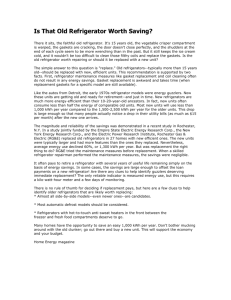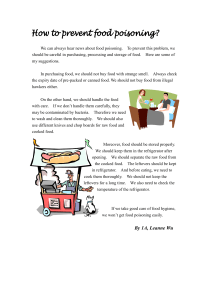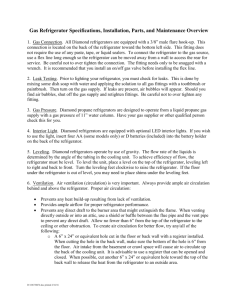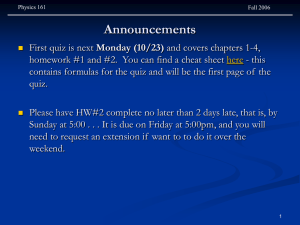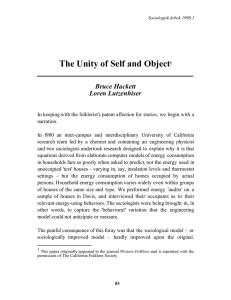Ward Refridgerators Guidelines For Use ICC
advertisement
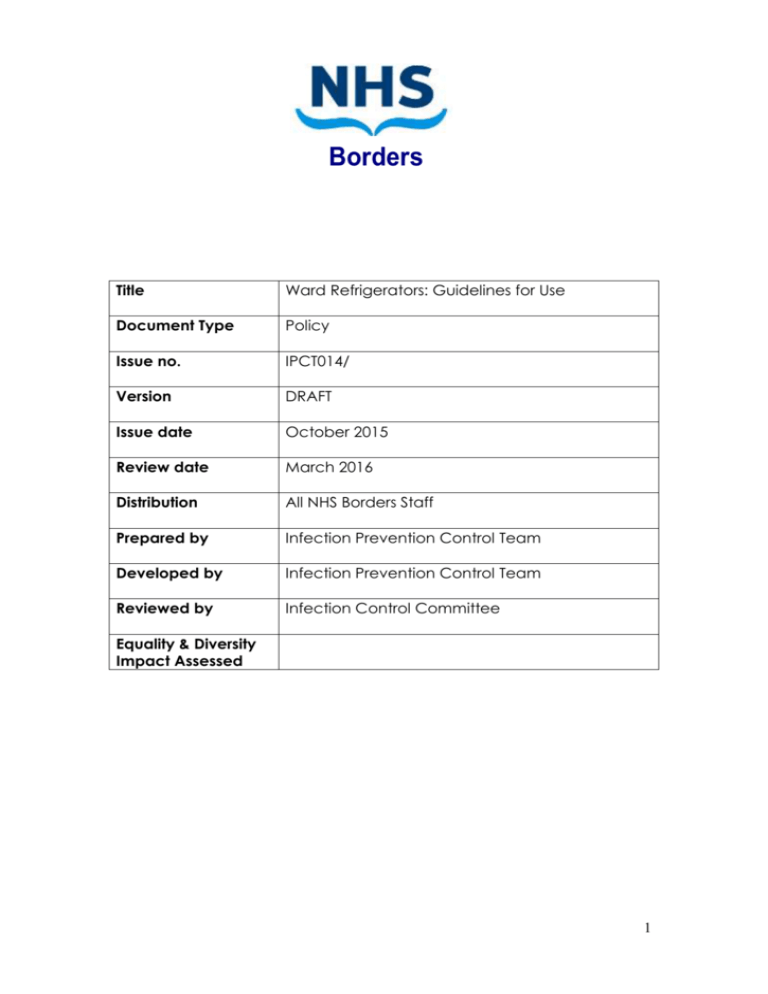
Borders Title Ward Refrigerators: Guidelines for Use Document Type Policy Issue no. IPCT014/ Version DRAFT Issue date October 2015 Review date March 2016 Distribution All NHS Borders Staff Prepared by Infection Prevention Control Team Developed by Infection Prevention Control Team Reviewed by Infection Control Committee Equality & Diversity Impact Assessed 1 WARD REFRIGERATORS: GUIDELINES FOR USE Aim: Ensure that refrigerated food is managed in a safe manner, to prevent food related illnesses Standards 1. The ward food refrigerator will be maintained by the Estates staff and cleaned and defrosted by the General Services staff or as per local policy 2. It is important that all faults are reported immediately to the Estates Department by the Nurse in Charge 3. All reported faults must have an agreed deadline for rectification and progress monitored 4. The food refrigerator should operate between 1-4C. The temperature must be recorded minimum twice daily and a record kept. Inform Estates department if the refrigerator temperature is operating out with 1-4C [note: fridge temperature recordings should be made during periods of minimal activity when the fridge door has been closed for at least 2 hours; usually early morning and mid evening. 5. Freezer temperatures should operate between -12 and -18°C. The temperature should be recorded minimum once per day following the same principles as for refrigerators, and a record kept. 6. Recording sheets need to be returned to the catering department at the end of each month “Click here for the recording sheet and flow chart” 7. All food and drink must be covered labelled and dated while in storage 8. All items must be used in rotation. Food or drink must never be consumed after ‘use-by’ or ‘best before’ date 9. Large quantities of food must not be allowed to accumulate. Orders must only be placed for actual requirements. All surplus food must be disposed of 10. Pre-packaged food or drink purchased by staff or patients must be labelled with the date and name of the owner and sealed 2 until use. Sufficient food for that day’s use only should be brought in and stored 11. Prepared food brought in by staff for personal use must be clearly labelled with date and name 12. The Nurse in Charge has the responsibility of ensuring that the refrigerator is checked at the end of evening shift and that items incorrectly labelled, stored or out of date are disposed of 13. Drugs or specimens must not be placed in the food refrigerator 14. Raw poultry and shell eggs must not be stored in the refrigerator. Shell eggs may be stored in training kitchen refrigerators only, for the purpose of teaching patients how to hard boil eggs. Eggs must be boiled for a minimum of 7 minutes. 3
